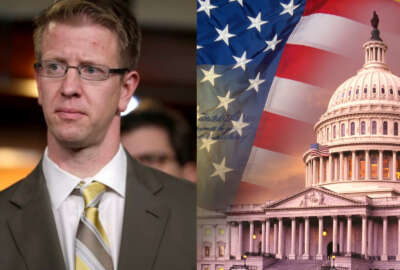Analysis: Intelligence contractors necessary, desirable
Do top officials know exactly how many people work under top-secret titles and what they do? We\'ll hear from the president of Professional Services Council.
wfedstaff | June 3, 2015 8:53 am
A recent Washington Post series on top-secret government work has left the District buzzing over the proper role of private industry in national security.
But Stan Soloway, President and CEO of the Professional Services Council, says anxiety about intelligence contractors is misplaced.
Contractors tend to be qualified in technical skills that are in high demand but low supply economy-wide.
“They are bringing to the government skills and capabilities that might well otherwise be inaccessible to the government,” Soloway says.
Without contracting, Soloway says, critical tasks could go unhandled. Often, highly-qualified people demand a larger salary than the government can pay. That makes temporary contracting the only way to get the talent in the door.
Soloway particularly takes issue with Defense Secretary Robert Gates’ statement that, “You want somebody who’s really in it for a career because they’re passionate about it and because they care about the country and not just because of the money.”
“I found it very disturbing that the Secretary of Defense made a comment that basically said that there is a dramatic difference in the patriotism and commitment to mission between government employees and those who work in an environment where the profit is important,” Soloway says.
He says many intelligence contractors are former military or civilian government personnel and questioning their dedication is “unfair and unfounded.”
He also says contract agreements keep the process squarely focused on the mission.
“To be really frank about it, if you are concerned that the profit motive may sometimes overpower government interest, the contract is your best vehicle. A well-written and well-managed contract gives you more ability to direct how behaviors impact the mission than almost anything else you could do.”
Soloway says focus should not be on cutting back on contractors, but rather on ensuring the intelligence community as a whole community is “properly managed, structured, and balanced.”
America’s intelligence apparatus has some very real challenges, he says, but most of them are internal organizational and management issues. “The growth of contracting and intelligence, like any other area, is a direct reflection of what the government has decided it needs,” Soloway notes.
And since a vibrant private sector drives growth, Soloway says hiring out improves national security and the economy.
“It’s not the reason you do something, but where the two interests coincide, I think it’s a good thing,” he says.
Rachel Stevens is an intern with Federal News Radio.
Copyright © 2024 Federal News Network. All rights reserved. This website is not intended for users located within the European Economic Area.





